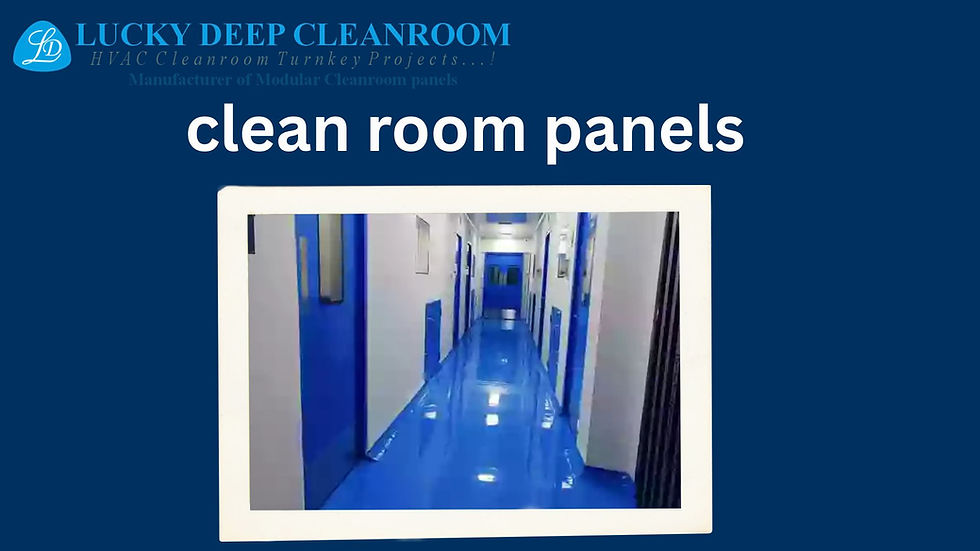The Future of Cleanrooms: Smart Integration with Modular Panel Systems
- Lucky Deep
- May 23, 2025
- 2 min read

Why Choose Modular Cleanroom Panels?
Modular clean room panels stand out because of their versatility, cost-effectiveness, and ease of installation. Traditional cleanroom construction methods can be time-consuming and expensive, but modular systems provide an efficient alternative. With modular cleanroom panels, you can create new spaces in a fraction of the time — sometimes within hours instead of days. These pre-fabricated walls and enclosures are built off-site and can be assembled quickly to suit any facility’s needs.
Unlike permanent structures, modular systems offer flexibility. You can easily relocate, replace, or remove the panels if necessary. This adaptability is especially valuable for businesses that might need to adjust their cleanroom layout over time to accommodate growth or changing requirements.
Customization for Every Need
Modular cleanroom panels are highly customizable, ensuring that each system is tailored to meet specific project needs. Whether you’re building a laboratory, office, or specialized manufacturing space, the panels can be designed to match the exact specifications of your facility.
These panels come in different sizes, materials, and insulation options. Depending on the requirements, you can opt for PUF, PIR, or Rockwool for insulation in-fill. Panel thicknesses range from 35mm to 150mm, providing different levels of insulation to meet the thermal and soundproofing needs of the space.
Specifications at a Glance
Size: Customised to project requirements
Type of Insulation: PUF, PIR, Rockwool
Material: Metal (typically GI, Aluminum, or SS-304)
Panel Type: M-section framed (GI / Aluminium)
MOC (Material of Construction): GI pre-coated / GI powder-coated / SS-304
Thickness of Sheet: 0.5mm / 0.6mm / 0.8mm / 1.0mm
Panel Thickness: 35mm / 50mm / 80mm / 100mm / 150mm
Applications Across Industries
Modular cleanroom panels are designed to meet the stringent demands of various industries, including:
Pharmaceutical Industry: Ensuring sterile environments for drug manufacturing.
Food Industry: Preventing contamination in food production areas.
Chemical Factories: Providing controlled spaces for the safe manufacturing of chemicals and other sensitive materials.
Cost-Effectiveness and Value for Money
Modular cleanroom panels offer a cost-effective solution without compromising quality. With easy installation, low maintenance, and the ability to customize the system to meet specific needs, modular systems provide an excellent return on investment for businesses.
Conclusion
The future of cleanrooms is clear — smart integration with modular panel systems is the way forward. By choosing modular cleanroom panels, businesses can enjoy the benefits of flexibility, cost savings, and quick installation while maintaining the highest standards of cleanliness and control. Whether you’re upgrading an existing facility or building a new one, modular systems provide the ideal solution for any industry.
--




Comments